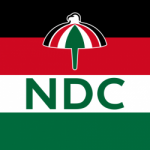The National Identification Authority (NIA) has launched the first phase of a pilot project to issue Ghana Cards to Ghanaians living abroad, starting in Ottawa and Ontario, Canada. This initiative is part of a broader plan to extend the Ghana Card services globally.

Pilot Locations
The pilot phase has initially rolled out in Ottawa and Ontario, Canada, with plans to expand to Washington, D.C., and New York in the United States. Last week, NIA officials and their technical partner, Identity Management Systems (IMS), conducted public consultations and trained designated staff from Ghana’s diplomatic missions in Canada to serve as registration officers.
NIA and IMS officials are currently in New York to conduct similar engagements and training with embassy staff for the upcoming U.S. registration drive.
Streamlined Registration for Ghanaians Abroad
Ghanaians living abroad can now register for the Ghana Card by filling out online forms, paying the necessary fees, and scheduling appointments from the convenience of their homes. Applicants, along with their guarantors, are interviewed online. They then visit the mission in person only for biometric data collection and to receive their cards, a process estimated to take just 10 minutes.

Registration Fees
The registration fees, as approved by parliament, vary by region: ECOWAS nationals pay $55, other Africans pay $75, and applicants from the rest of the world are charged $115. Registration is open to individuals aged six and above, with valid passports or birth certificates required. In cases where these documents are unavailable, applicants can be vouched for during interviews.
Dual citizens can also apply, but non-Ghanaian spouses and those who have renounced their Ghanaian citizenship are not eligible.
NIA’s Global Initiative
NIA Board Chairman, Mr. Abel Edusei, described the event in Ottawa as a significant milestone, marking the NIA’s efforts to extend the Ghana Card services beyond Ghana’s borders. The initiative aims to identify Ghanaians worldwide.
Training for Mission Staff
NIA Executive Secretary, Prof. Kenneth Agyemang Attafuah, announced plans to train Ghanaian diplomatic staff globally to manage the registration process. He explained that these staff members are legally mandated to serve as registration officers. Prof. Attafuah also highlighted the Ghana Card’s integration into the ECOWAS system, eliminating the need for a separate ECOWAS ID card.
Ghana Card Security Features
Prof. Attafuah discussed the security measures of the National Identification System (NIS), explaining that first-time registration in Ghana is free at NIA district offices, but premium services and institutional registrations incur fees. The card is valid for 10 years, after which renewal requires a fee.
The Ghana Card’s Personal Identification Number (PIN) replaces various national identifiers, including the SSNIT number, Tax Identification Number (TIN), and National Health Insurance Scheme (NHIS) number.
Data Security Assurance
IMS Executive Director, Mr. Emmanuel Selby, assured attendees that all data collected is securely stored in Ghana, not in the cloud. Data is transmitted via private virtual networks, with the primary site in Accra and a backup site in Kumasi, ensuring real-time synchronization between the two locations. He emphasized that biometric data is not shared with external agencies, only limited data subsets, as required by law.
Biometric Verification
IMS Chief Operating Officer, Mr. James Cantamantu-Koomson, explained that biometric verification will be used for all transactions to prevent identity fraud, as relying solely on visual card checks poses security risks.
Community Engagement in Ottawa
Ghana’s Ambassador to Canada, Anselm Ransford Adjetey Sowah, organized the community engagement in Ottawa, where participants appreciated the informative session about the Ghana Card registration process.























































![[FREE FREE MONEY] Predict and Win a Guaranteed GH¢200 From Us EVERY WEEK](https://wordpress.ghanatalksradio.com/wp-content/uploads/2022/02/Predict-and-Win-Final-09-03-2021-218x150.jpg)
![[Predict & Win – 8th/Oct.] WIN A Guaranteed ¢200 From Us This Week](https://wordpress.ghanatalksradio.com/wp-content/uploads/2021/10/maxresdefault-16-218x150.jpg)
![[Predict & Win – 2nd] WIN A Guaranteed ¢200 From Us This Week](https://wordpress.ghanatalksradio.com/wp-content/uploads/2021/09/maxresdefault-50-218x150.jpg)
![[Predict & Win – 25th] WIN A Guaranteed ¢200 From Us This Week](https://wordpress.ghanatalksradio.com/wp-content/uploads/2021/09/maxresdefault-36-218x150.jpg)
![[Predict & Win – 18th] WIN A Guaranteed ¢200 From Us This Week](https://wordpress.ghanatalksradio.com/wp-content/uploads/2021/09/maxresdefault-23-218x150.jpg)







![[National cathedral] See full list of churches that have contributed since 2018](https://wordpress.ghanatalksradio.com/wp-content/uploads/2020/09/Ghana-National-Cathedral-GhanaTalksRadio-100x70.jpg)



